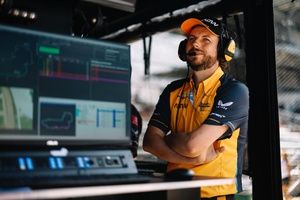
And Then There Were Three
Following the controversy of the United States Grand Prix, Formula One was back in proper action in France to reach to halfway point of the season, in a race which clearly showed the battle for this year's title is down to three men only. Richard Barnes analyses the Championship situation after the 10th round of the season
After the uproar concerning the Michelin tyre failures and six-car race at Indianapolis two weeks ago, it was hoped that the French Grand Prix weekend would mark a comparatively quiet and uncontroversial return to normal Formula One racing. While the lack of penalties and punishments (at least, until September) had served to calm tensions between the seven Michelin team owners and Max Mosley, the FIA president found himself under fire from a different quarter - the drivers.
It had started with the declaration, signed by the Michelin and Minardi drivers, backing the teams' suggestion of a chicane and refuting the FIA's alternative of applying a speed limit through Indianapolis' banked Turn 13. That declaration drew an angry response from Mosley, who telephoned Red Bull Racing's David Coulthard to express his displeasure at the drivers' actions. Coulthard was singled out presumably because, as a director of the Grand Prix Drivers' Association, his signature appeared at the head of the document, making him appear to be the chief instigator.
Share Or Save This Story
Subscribe and access Autosport.com with your ad-blocker.
From Formula 1 to MotoGP we report straight from the paddock because we love our sport, just like you. In order to keep delivering our expert journalism, our website uses advertising. Still, we want to give you the opportunity to enjoy an ad-free and tracker-free website and to continue using your adblocker.

















